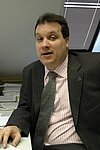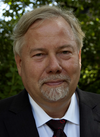Group 4
Comparative Group 4: Adult education, Lifelong Leraning and the Sustainable Development Goals (SDGs)
participation, social inclusion, literacy
The UN has decided in 2015 to outset seventeen goals for global sustainable development until 2030. Although education was primarily indicated as an area to reach for better quality, it has a lot to do in order to get the other sixteen goals be realised, improved at a significant scale. This comparative working group will scrutinize how adult education and lifelong learning in the countries participants represent have started to move alongside sustainable development so as to realise relevant goals indicated by distinguished calls, manifestos, declarations, and strategies of international organisations, together with relevant examples of practice in the field, represented by stakeholders, so as to raise participation of and access for adult learners in the contexts of sustainable development.
Comparative research question
What issues, related to sustainable development goals (SDGs), are currently influencing adult education and lifelong learning policy (issues incorporated in national strategies, laws and other docu-ments related to education and LLL) and practice in your country (examples of good practice in integrating issues of sustainable de-velopment in different sectors (e.g. schools, companies, NGOs, etc.) and at the different levels (content, approach, institutional development, participatory planning, etc.)
Context of comparison
- Reflections/responses to UNESCO’s 3rd Global Report on Adult Learning and Education (GRALE3-2016), or to the UNESCO Recommendation on Adult Learning and Educa-tion (RALE-2015) and to EAEA’s 2016 Manifesto for Adult Learning recognized in national policies or governments’ decisions/initiatives
- Relevant actions (e.g. at local/regional, national or interna-tional grounds) government(s) and key stakeholders in the represented countries have done in collaboration towards adult and lifelong learning for sustainability?
- Concrete examples by which participating students can ex-plain the situation in represented country/region/locality towards raising participation in programmes designed to increase employment, health and well-being, or social, civ-ic and community life.
Categories of comparison (selection for the transnational essay is based on participants research interests)
Two policy Actions for SDGs in comparison:
-
What have your government and relevant stakeholders done in collaboration towards adult learning and education for sustainable development? Please provide max 2-3 concrete examples of collaborative actions (if existing!)
Have UN sustainable development goals and the 2030 Agenda been addressed in your country by organisations, institutions of adult education, lifelong learning, HEIs, or beyond? Please mention 2-3 relevant topics, or focus (if existing!)
Please respond to the below three Specific Actions for comparison in the context of the reality of your Country:
This is optional referring to existing country specific actions! (Only respond to those point where you find concrete example(s) from your Country!
-
Adult and lifelong learning for better health, quality environment and well-being – Please try to collect examples of relevant actions, programmes, projects and initiatives, etc.
Adult and lifelong learning for raising literacy and skills for better employment and labour market – Please try to collect examples of relevant actions, programmes, strategies, projects, and initiatives;
Adult and lifelong learning for better social, civic and community life – Please try to collect examples of relevant actions, programmes, projects, initiatives, strategies, etc.
References
Hinzen, Heribert – Schmitt, Slyvia (eds.) (2016) Agenda 2030 – Education and Lifelong Learning in the Sustainable Development Goals. International Perspectives in Adult Education 75. Bonn: DVV International (ISBN:978-3-942755-29-0)
Milana, Marcela – Nesbit, Tom (eds.) (2015) Global Perspectives on Adult Education and Learning Policy. 288 p. London: Palgrave Macmillan (ISBN:9781137388247)
Adult Education and Development (80/2013) – Post 2015. Bonn: DVV International (ISSN: 0342 7633)
UNESCO GRALE3 Report – Sources: www.ul.unesco.org
Global Education monitoring Report (2016) Education for people and planet: Creating sustainable futures for all - Source: http://gem-report-2016.unesco.org/en/home/
Global Education Monitoring Report (2017) Accountability in Education. Meeting our Commitments Source: http://unesdoc.unesco.org/images/0025/002593/259338e.pdf
Prof. Balázs Németh, Pécsi Tudományegyetem, HUNGARY

Dr. Balázs Németh is a researcher in European adult and lifelong learning policy development and comparative adult education. He is an associate Professor and reader in adult Learning and education at the University of Pécs. He is also a founding member of the Hungarian Universities Lifelong Learning Network (MELLearN) and represents the University of Pécs in the European Universities Continuing Education Network (EUCEN) and in the European Association for the Education of Adults (EAEA). Further research topics of his are: Politics and Adult Education; Comparative Adult Education; History of --Modern European Adult Education from 1850 to 1950; Learning Cities and Regions.
Prof. Arne Carlsen, Julius-Maximilian University Würzburg, GERMANY

From 2011 to 2017, Prof. Carlsen has been the director of the UNESCO Institute for Lifelong Learning in Hamburg, Germany. His career history demonstrates a long-standing commitment to adult and continuing education. Prof. Carlsen leads UIL’s work in fostering lifelong learning in all 195 UNESCO Member States. In his role as Director of UIL, Prof. Carlsen works with a team of outstanding education experts to spearhead research, capacity building, networking and publication on lifelong learning. He has initiated a number of high-impact interventions advocating lifelong learning as the main conceptual framework and principle for education reforms in the twenty-first century. In winter term 2017/2018 Prof. Carlsen will be visiting professor at the Institute of Education at the Julius-Maximilian University Würzburg within the DAAD guest lecturer programme.
Dr. Violeta Orlovic Lovren, Univerzitet u Beogradu, SERBIA

Dr. Violeta Orlovic Lovren is Associate professor in Department of Andragogy, Faculty of Philosophy, University of Belgrade. Her expertise is adult teaching, environmental adult education and sustainability. er research interests are focused on adult teaching strategies, implications of sustainability on adult and lifelong learning, sustainable development in universities, as well as the role of adult learning in increasing disaster risk resilience and quality of life in local communities. She is member of ESREA (European Society for Research on Education of Adults) and coordinator of the Board of the IUSDRP (Inter-University Sustainable Development Research Program) network for University of Belgrade, Serbia.


